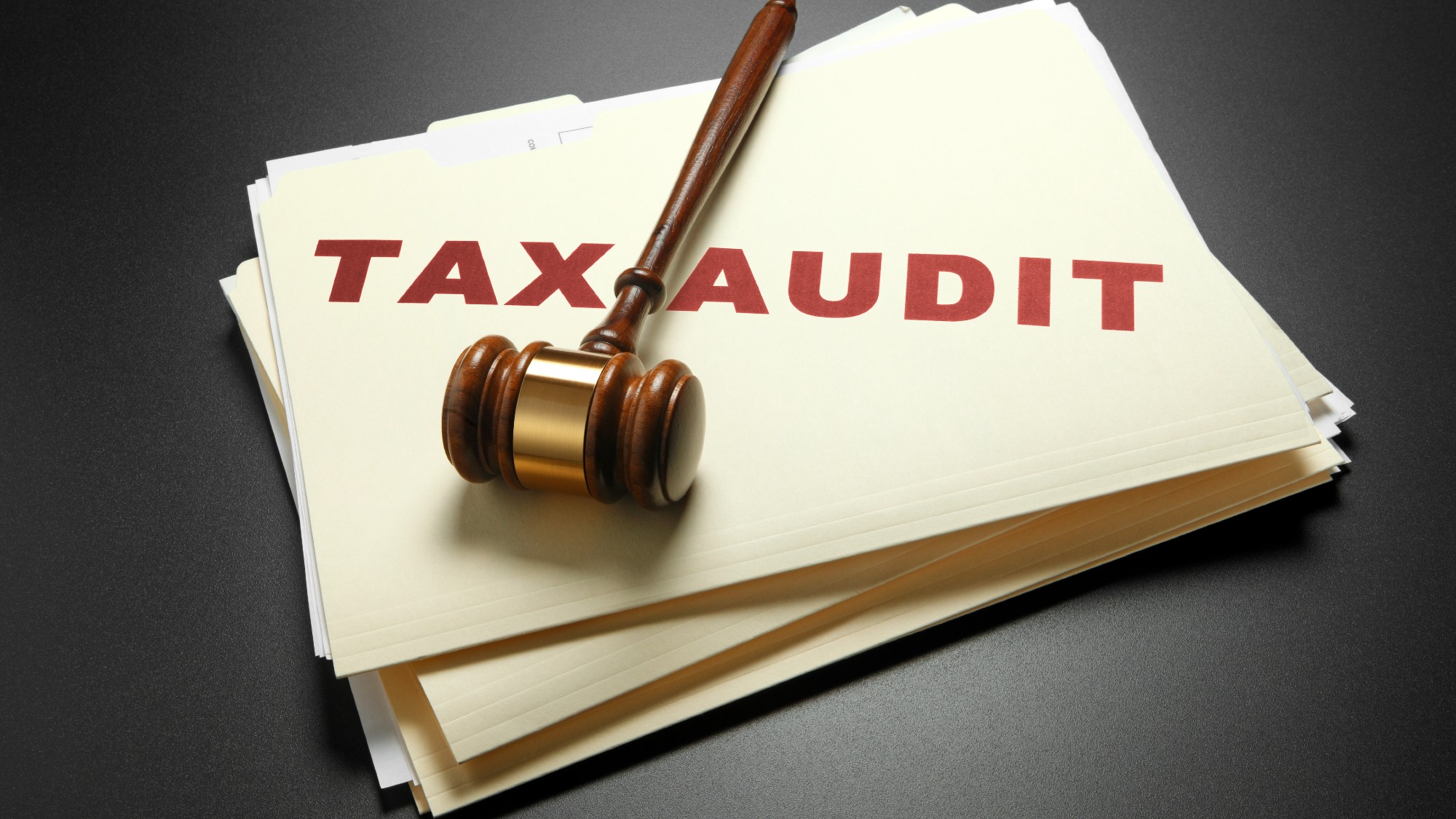How likely are you to get audited by the IRS?
The odds are greater for some than others


A free daily email with the biggest news stories of the day – and the best features from TheWeek.com
You are now subscribed
Your newsletter sign-up was successful
April 15 was Tax Day. If you filed this year, you may be worried about whether you submitted all your materials correctly or put yourself at risk of being audited. An Internal Revenue Service (IRS) audit is a "review of your information and accounts to ensure you're ... following the tax laws, and that your reported tax amount is correct," said NerdWallet. The IRS may choose a tax return to audit at random. For the most part, though, it selects taxpayers whose returns display some kind of suspicious activity, whether it be mistakes, unreported income or too many deductions. Essentially, the IRS is attempting to double-check your work, and to "minimize the 'tax gap,' or the difference between what the IRS is owed and what the IRS actually receives," said NerdWallet.
In 2022, the IRS closed 708,309 tax return audits, resulting in almost $30.2 billion in recommended additional tax, said an IRS data report. That may sound like a lot, but most people's odds of getting audited are still quite low: "Only .2% of all individual income tax returns filed for the 2020 tax year faced an audit," said CBS News. "That means about 1 in 500 tax returns are audited each year." So, who is most at risk?
What happens when you get audited?
When you are selected for an audit, the IRS sends a letter in the mail with specific information about why your return is being examined. To comply, you will submit records for an examiner to review. This is one of the reasons experts recommend keeping your tax records for at least three years after filing. "Most returns are selected for examination within the first 24 months of filing," Michelle Marion, the managing director at Washington National Tax, said to U.S. News & World Report.
The Week
Escape your echo chamber. Get the facts behind the news, plus analysis from multiple perspectives.

Sign up for The Week's Free Newsletters
From our morning news briefing to a weekly Good News Newsletter, get the best of The Week delivered directly to your inbox.
From our morning news briefing to a weekly Good News Newsletter, get the best of The Week delivered directly to your inbox.
There are different types of audits; some minor, some major. An audit can be conducted through the mail (a correspondence audit, which is most common) or through an in-person interview with an IRS agent (which is more serious). An audit may result in a change to your tax return and owing additional money. "The most common penalty imposed on taxpayers ... is the 20% accuracy-related penalty," said FindLaw. In more extreme cases, "the IRS can also assess civil fraud penalties and recommend criminal prosecution." Luckily, there are definitive steps you can take to protect yourself when filing, like reporting all of your income and playing it safe with deductions and credits.
Who is most likely to be audited?
This answer is complicated. The audit rate has been declining for years, according to IRS data, partially due to the service's diminishing workforce. However, that may change: The IRS is "now beefing up its staff, thanks to Inflation Reduction Act funding, and it says that it is focusing on increasing audits for those earning above $400,000," said CBS News.
The taxpayers most likely to be audited are those with annual incomes exceeding $10 million. But the second most likely group is a vastly different demographic: Low- and moderate-income taxpayers who claim the Earned Income Tax Credit, or EITC. People can claim differing amounts through the EITC, according to their income or number of dependents; if the IRS doubts the taxpayer's qualifications for this credit, the return gets flagged. "Generally, the more money you make, the more likely you are to be audited," said ProPublica. But the exception is EITC recipients, whose typical income is low, since many of these people "claim the credit in error." EITC recipients are also more likely to have their refund held, which "can be calamitous for someone living month-to-month."
In addition to socioeconomic factors, race may play a role. A study conducted by the Treasury Department found that while EITC claimants are indeed audited more often, Black EITC claimants are even more at risk. The study concluded Black Americans are three times likelier to be audited overall. "Black taxpayers tend to make the types of mistakes that IRS historically has focused on," said Evelyn Smith, the study author, to NPR. While IRS funding has been falling for the last decade, resulting in fewer auditors, "the audit rate for EITC claimants has not fallen," said Smith, in part because "the types of EITC audits that IRS does are pretty simple."
A free daily email with the biggest news stories of the day – and the best features from TheWeek.com
To put this disparity succinctly: "If you're a single Black man with dependents who claims the EITC, you have a 7.73% chance of being audited by the IRS in any given year," said Axios. "For Americans as a whole, the equivalent figure is just 0.54%."
Anya Jaremko-Greenwold has worked as a story editor at The Week since 2024. She previously worked at FLOOD Magazine, Woman's World, First for Women, DGO Magazine and BOMB Magazine. Anya's culture writing has appeared in The Atlantic, Jezebel, Vice and the Los Angeles Review of Books, among others.
-
 How the FCC’s ‘equal time’ rule works
How the FCC’s ‘equal time’ rule worksIn the Spotlight The law is at the heart of the Colbert-CBS conflict
-
 What is the endgame in the DHS shutdown?
What is the endgame in the DHS shutdown?Today’s Big Question Democrats want to rein in ICE’s immigration crackdown
-
 ‘Poor time management isn’t just an inconvenience’
‘Poor time management isn’t just an inconvenience’Instant Opinion Opinion, comment and editorials of the day
-
 What are the best investments for beginners?
What are the best investments for beginners?The Explainer Stocks and ETFs and bonds, oh my
-
 What to know before filing your own taxes for the first time
What to know before filing your own taxes for the first timethe explainer Tackle this financial milestone with confidence
-
 What’s a good credit card APR?
What’s a good credit card APR?The Explainer They have gotten even steeper in recent years
-
 Filing statuses: What they are and how to choose one for your taxes
Filing statuses: What they are and how to choose one for your taxesThe Explainer Your status will determine how much you pay, plus the tax credits and deductions you can claim
-
 3 tips to help protect older family members from financial scams
3 tips to help protect older family members from financial scamsthe explainer Prevent your aging relatives from losing their hard-earned money
-
 What would a credit card rate cap mean for you?
What would a credit card rate cap mean for you?the explainer President Donald Trump has floated the possibility of a one-year rate cap
-
 What to look for in a reliable budgeting app
What to look for in a reliable budgeting appThe Explainer Choose an app that will earn its place in your financial toolkit
-
 Do you have to pay taxes on student loan forgiveness?
Do you have to pay taxes on student loan forgiveness?The Explainer As of 2026, some loan borrowers may face a sizable tax bill
